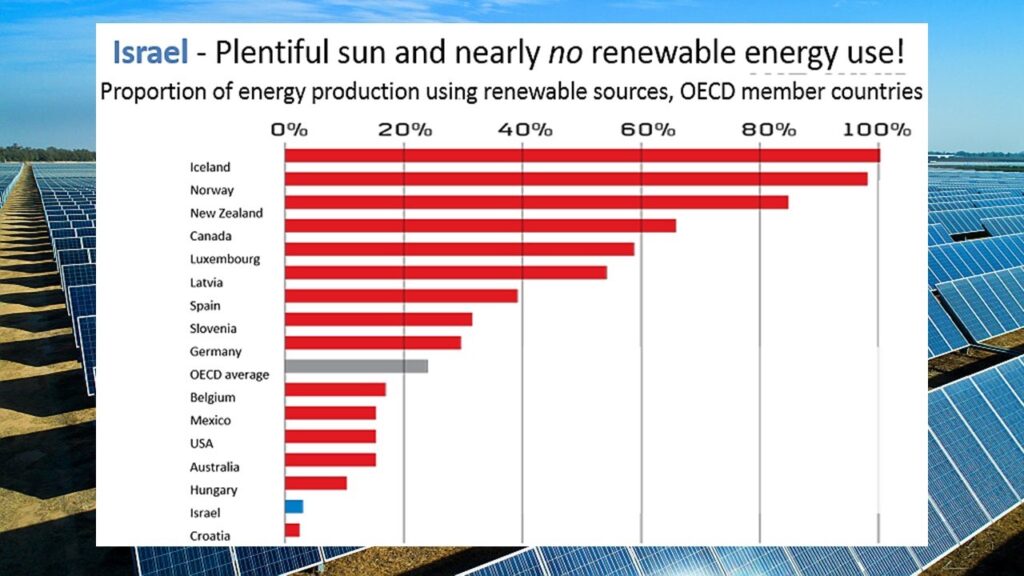Will Israel influence new energy?
Israel, renowned for its prowess in military technology and innovation, exerts a significant influence on the new energy market through various channels. As a country faced with geopolitical challenges and a strong commitment to energy security, Israel has leveraged its military expertise to drive advancements in new energy technologies and foster collaborations in the global energy sector. This analysis will delve into Israel’s military-driven impact on the new energy market, exploring its initiatives, innovations, and collaborations

1. Military Innovation Spillover:
Israel’s military-industrial complex, characterized by cutting-edge research and development, serves as a breeding ground for technological innovations that transcend military applications. Technologies initially developed for military purposes often find civilian applications, including those in the energy sector. For example, advancements in battery technology, such as high-energy-density batteries and advanced energy storage systems, originally developed for military equipment, have paved the way for breakthroughs in renewable energy storage solutions. This spillover effect accelerates innovation in the new energy market, driving efficiency improvements and cost reductions.
2. Technological Expertise and Know-How:
Israel’s military has cultivated a wealth of technological expertise and know-how in areas such as cybersecurity, robotics, and unmanned aerial vehicles (UAVs). This expertise is increasingly being harnessed to address challenges in the energy sector. For instance, Israeli companies specializing in cybersecurity have adapted their technologies to protect critical energy infrastructure from cyber threats. Similarly, advancements in UAV technology have enabled more efficient monitoring and maintenance of renewable energy installations, enhancing operational efficiency and security in the new energy market.
3. Military Procurement and Demand Generation:
The Israeli military’s procurement practices and demand for innovative technologies serve as catalysts for the development and commercialization of new energy solutions. Military contracts provide vital funding and validation for emerging technologies, spurring investment and attracting talent to the new energy sector. Moreover, the stringent performance requirements imposed by the military drive continuous improvement and innovation in energy technologies, leading to the development of more reliable, efficient, and cost-effective solutions for civilian applications.
4. Strategic Partnerships and Collaborations:
Israel’s military collaborations with international partners, including governments, defense contractors, and research institutions, extend to the energy sector, facilitating technology transfer and knowledge exchange. Joint research and development projects between Israeli defense companies and foreign counterparts often yield innovations with dual-use applications, benefiting both military and civilian markets. Additionally, Israel’s diplomatic relations and strategic alliances provide access to global markets, enabling Israeli companies to export their energy technologies and expertise to countries seeking to enhance their energy security and sustainability.
5. Military-Driven Demand for Energy Innovation:
The Israeli military’s operational requirements, such as reducing reliance on fossil fuels, enhancing energy efficiency, and securing energy supply chains, drive demand for innovative energy solutions. In response, Israeli companies develop and deploy advanced energy technologies tailored to meet military needs, which subsequently find commercial applications in the civilian sector. For example, innovations in portable renewable energy systems and off-grid power solutions developed for military deployments are now being adopted for remote civilian applications, such as disaster relief operations and off-grid communities.
6. Energy Security Imperatives:
As a nation lacking significant natural resources, Israel places a high priority on energy security and independence. The military plays a central role in safeguarding critical energy infrastructure and ensuring uninterrupted energy supply during times of crisis. In pursuit of energy security objectives, Israel invests in diverse energy sources, including renewable energy, to reduce its vulnerability to geopolitical disruptions and diversify its energy mix. This focus on energy security drives innovation and investment in renewable energy technologies, bolstering Israel’s resilience and competitiveness in the global energy market.
In conclusion, Israel’s military exerts a considerable influence on the new energy market through its technological innovations, expertise, procurement practices, partnerships, and energy security imperatives. By leveraging its military-driven advancements and collaborations, Israel contributes to the acceleration of innovation, commercialization, and adoption of new energy technologies globally, positioning itself as a key player in shaping the future of the energy landscape.

